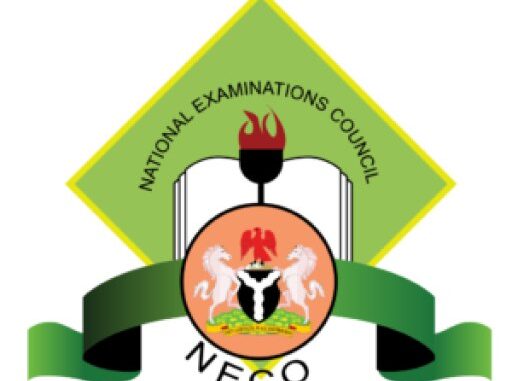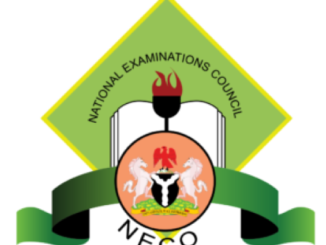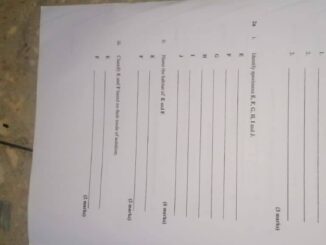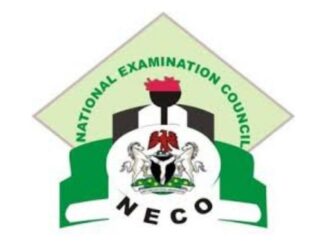
All NECO 2023 PRACTICAL SPECIMEN LISTED BELOW
PHYSICS PRACTICAL SPECIMEN
Question 1
-Metre rule
-Retort stand and clamp
-Pointer
-Plasticine
-Spiral spring
-Mass hanger
-Masses of 50, 70, 90, 110 and 130 g
-Stop watch/clock
Question 2
-Rectangular glass block
-4 optical pins
-Drawing board Drawing papers
-Protractor
-30 cm ruler
-4 drawing pins
Question 3
-Resistance box
-Rheostat
-Ammeter (0-1 A)
-2V Accumulator or two 1.5 V dry Leclanche cell
-10 connecting wires
-Torch light bulb
-Key
==============================================
CHEMSITRY PRACTICAL SPECIMEN
- Great care should be taken to ensure that the information given below does not reach the candidates either directly or indirectly before examination.
- In addition to the apparatus and reagents expected to be available in a Secondary School Chemistry Laboratory, each candidate will require the following:
(a) One burette (50 cm³)
(b) One pipette (20 cm or 25 cm³) However, all candidates in a centre must use pipettes of the same volume
(c) The usual apparatus for filtration.
(d) The usual apparatus and reagents for qualitative work including:
(i) Dilute sodium hydroxide solution
(ii) Dilute ammonia solution.
(iii) Dilute hydrochloric acid
(iv) Barium chloride solution
(v) Distilled water
(vi) Red and blue litmus paper
(vii) Phenolphthalein
(viii) Methyl orange
(ix) One boiling tube
(x) Five test tubes
(xi) Source of heat
(xii) Wash bottle containing distilled water
(xiii) Filtration apparatus
- Each candidate should be supplied with the following:
(a) 150 cm of tetraoxosulphate (VI) acid solution in a corked flask or bottle labelled ‘A. These should all be the same containing 2.20 cm of concentrated tetraoxosulphate (VI) acid per dm of solution
(b) 150 cm of sodium trioxocarbonate (IV) solution in a corked flask or bottle labelled ‘B. These should all be the same containing 3.6 g of sodium trioxocarbonate(IV) pellets per dm of solution
(c) One spatulaful of NaCO, in a corked specimen bottle labelled C, Note: ‘n’ is the candidate’s serial number.
===============================================
BIOLOGY PRACTICAL SPECIMEN
Specimen A – Land snail
Specimen B – Toad
Specimen C – Spider
Specimen D – Crayfish
Specimen E – Spirogyra filaments
Specimen F – Mucor/Rhizopus
Specimen G – Groundnut seedling (A week old)
Specimen H – Maize seedling (A week old)
Specimen I – Microscope
Specimen J – Slide (plain)
Specimen K – Pigeon
Specimen L – Agama Lizard
Specimen M – Rat
Specimen N – Tilapia
===============================================
AGRIC. SCIENCE PRACTICAL SPECIMEN
Specimen A – WATERING CAN
Specimen B – PLIER
Specimen C – KNAPSACK SPRAYER
Specimen D – LITMUS PAPER
Specimen E – COW DUNG
Specimen F – LIMESTONE
Specimen G – CLAYEY SOIL (POWDERY FORM)
Specimen H – YAM TUBER
Specimen I – CASSAVA TUBER
Specimen J – ORANGE FRUIT
Specimen K – GROUNDNUT CAKE
Specimen L – HIDES AND SKIN
Specimen M – DIGESTIVE TRACT OF A BIRD
COMPLETED✅





Be the first to comment